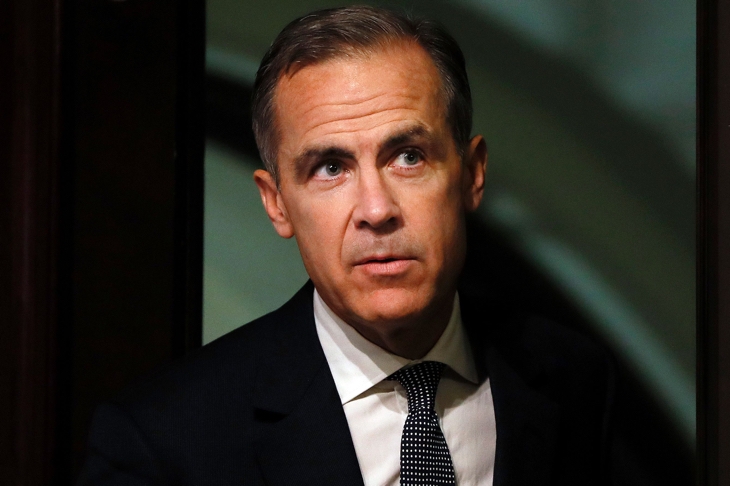It is possible that Mark Carney is not quite the last person to notice that the post-Brexit economy is positively booming. Jean-Claude Junker might be too busy working out new ways to ‘punish’ Britain to have paid attention to the statistics. Gina Miller is possibly working on some bizarre High Court action to keep us in the EU. There might even be a leader writer somewhere at the FT who is still worrying away about the collapse of the economy. But just about everyone else has woken up to the fact that ever since we voted to leave the EU, the British economy, far from falling off a cliff, seems to have got markedly better.
So Carney may not be absolutely the last person to the party. Still, as Governor of the Bank of England, and the bloke who is meant to know this stuff, you would sort of hope he was a bit quicker on the uptake.
This morning, giving evidence to the Treasury Select Committee, Carney came the closest to owning up to a mistake we have yet seen. Answering a question on the robust rise in consumer borrowing, he said ‘we’re concerned enough to look at it more closely’.
The Bank certainly should be looking at it. In fact, it has been obvious for several months now that the economy has accelerated since the referendum. Retail spending has been surging even if the High Street dipped a little last month. Consumer borrowing is up. The employment rate continues to hit all time highs. Industrial production is rising. House prices, outside of a few parts of central London where the Russians live, are robust. Tax revenues are better than expected. Even exports are increasing – especially exports outside of the EU, which rose by more than 10 percent year-on-year last month. Even the most swivel-eyed Ukipper couldn’t have predicted it would be this good.
There is no great mystery about that. In fact, the British economy was doing just fine before the vote. After the result came in, there was a sudden and dramatic devaluation of sterling. Soon afterwards, the Bank halved interest rates, and re-launched quantitative easing. Both were powerful stimulants – indeed, it was the kind of package the IMF would usually recommend for an economy in deep, deep trouble. The catch was the UK wasn’t in trouble. The EU had become more or less an irrelevance to a modern economy, so leaving was never going to make much difference one way or the other. As I argued in The Spectator recently, if you pour petrol onto a fire that was already burning well, you shouldn’t be surprised if it gets out of control.
And that surely is now the real risk to the UK. The economy right now looks close to returning to a state that should be familiar to Tory Chancellors from a long, long time ago – the ‘Barber Boom’ of the early 1970s, and the even more extreme ‘Lawson Boom’ of the late 1980s. A runaway splurge of debt and spending overheats the economy, setting it up for a nasty crash a year or two down the line.
There is one way to stop that. By the spring, at the latest, the Bank should claw back that half-point cut in rates after the referendum. It is good that Carney is finally ‘concerned’ about the rise in consumer debt and spending. It would be better, however, if he finally got round to doing something about it.






Comments